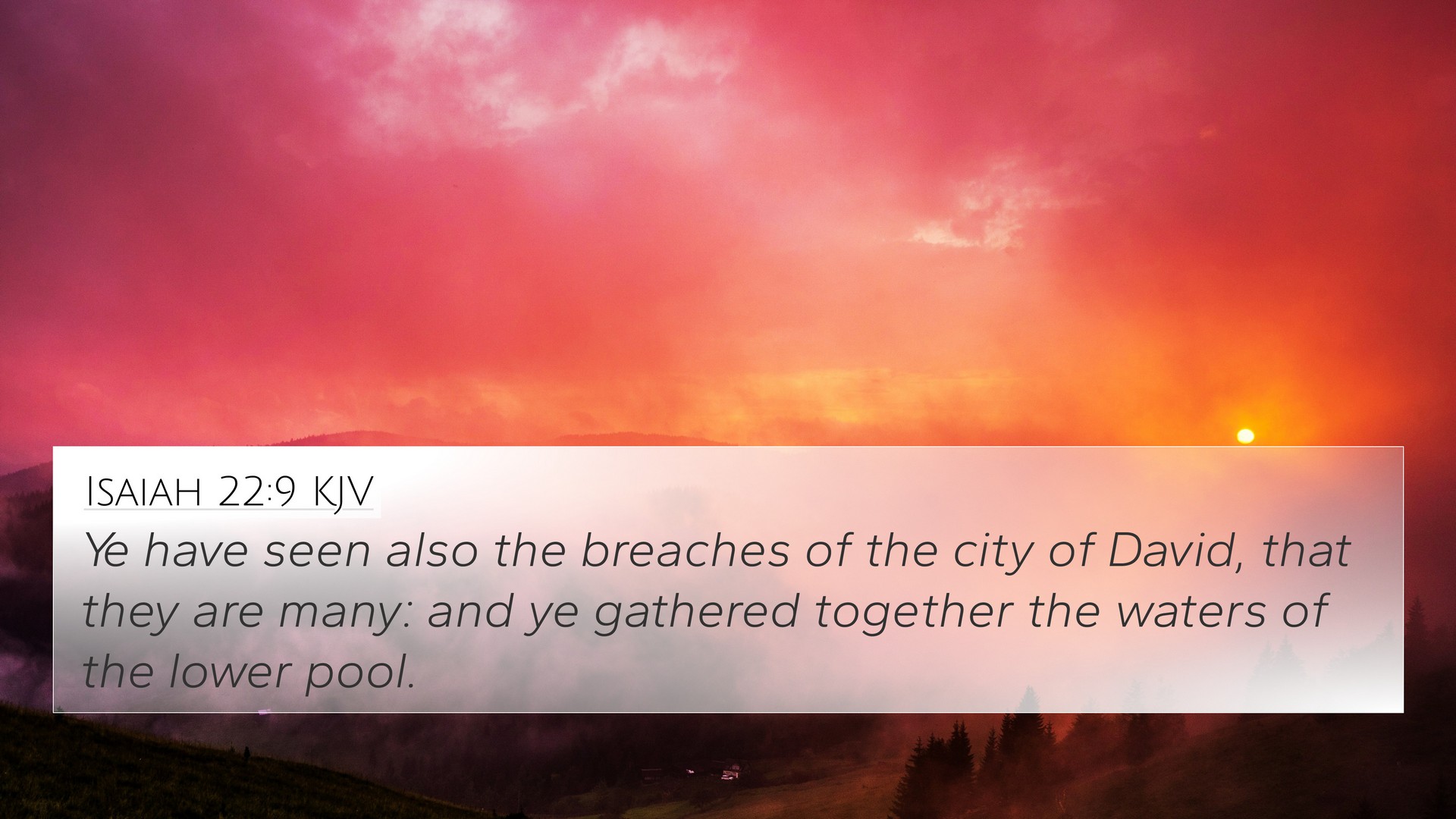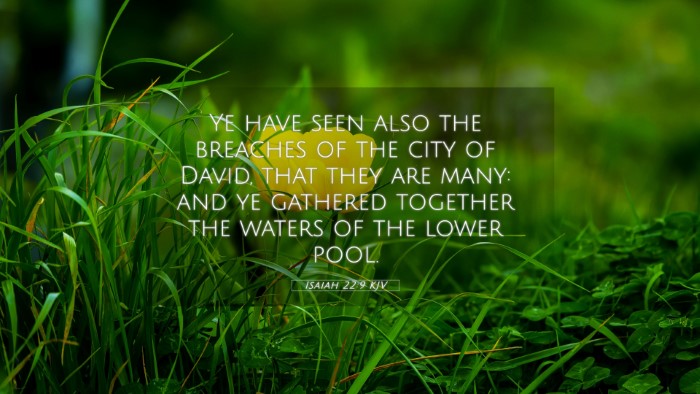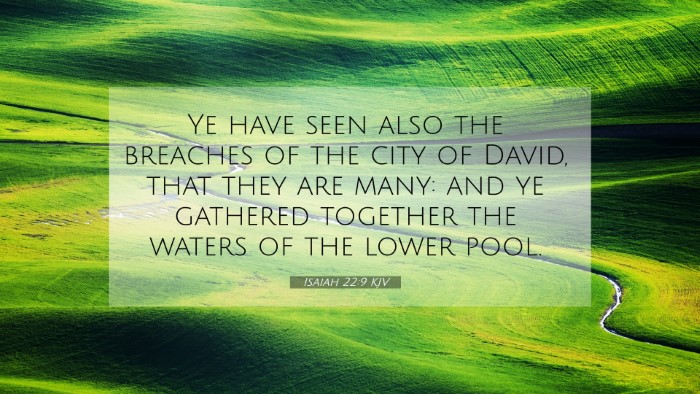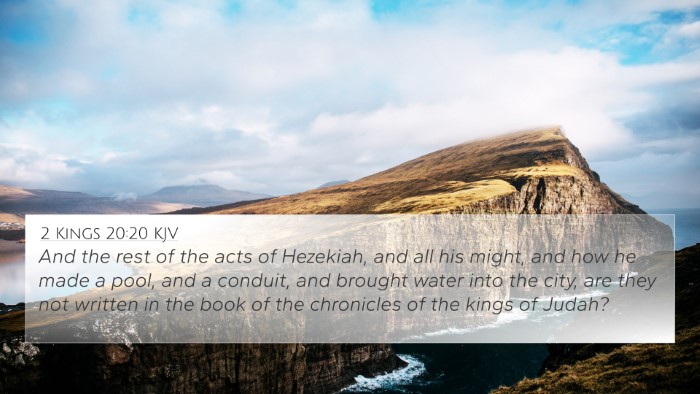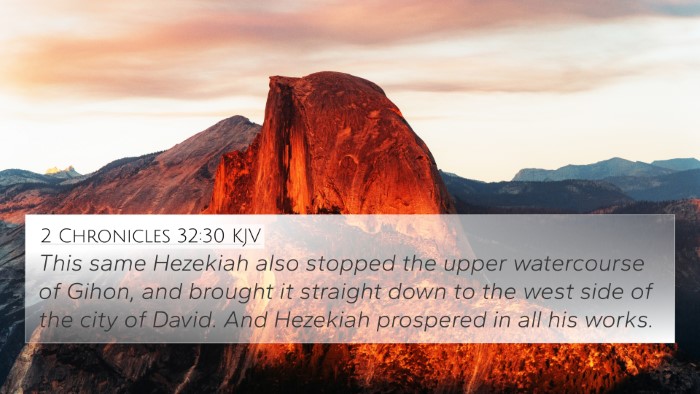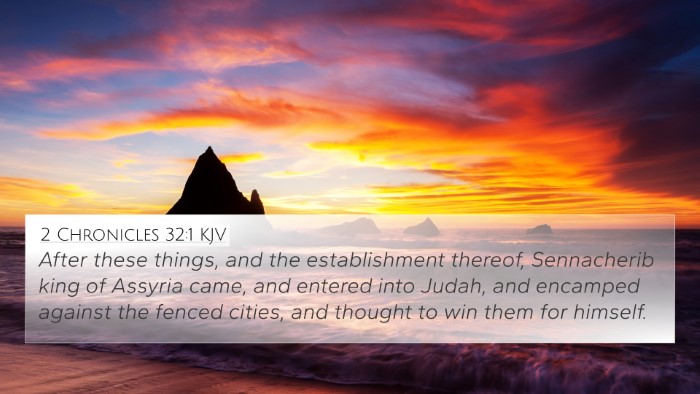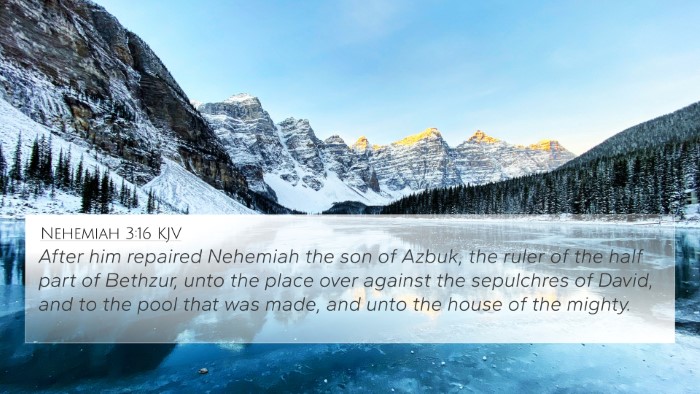Understanding Isaiah 22:9
Isaiah 22:9 states:
“And you saw the breaches of the city of David, that they are many: and you gathered together the waters of the lower pool.”
This verse can be understood as a prophetic message emphasizing the vulnerabilities of Jerusalem and a call to recognize the impending judgment. Here, we explore its significance by combining insights from public domain commentaries.
Summary of Insights
Various commentaries have shed light on the meaning of this verse:
- Matthew Henry: He emphasizes the importance of recognizing spiritual and physical weakness, noting that the breaches symbolize not just physical vulnerability but moral and spiritual ones as well. The mention of the city may imply God's protection is withdrawn due to Israel's disobedience.
- Albert Barnes: Barnes focuses on the gathering of waters, interpreting it as a strategic move to bolster the defenses of Jerusalem. The lower pool signifies preparation for potential sieges, indicating human attempts to secure safety in times of crisis, reflecting a lack of trust in God.
- Adam Clarke: Clarke highlights the historical context, suggesting that this passage reflects the military preparations made by the people of Jerusalem in response to the threats posed by their enemies. He notes the necessity of spiritual vigilance alongside physical preparedness.
Related Bible Verse Cross-References
Isaiah 22:9 can be cross-referenced with several other verses to fully grasp its meaning:
- 2 Chronicles 32:3-4: Discusses Hezekiah's measures to secure Jerusalem against Assyrian threats.
- Isaiah 36:1: The chapter addresses the Assyrian invasion of Jerusalem, providing immediate historical context.
- Lamentations 2:8: Reflects on the breaches in the walls of Zion and their implications for the city.
- Isaiah 30:1-3: Warns against seeking alliances with Egypt rather than relying on God, paralleling the theme of misplaced trust.
- Psalms 46:1-2: Offers assurance of God’s protection amidst chaos, contrasting human efforts with divine security.
- Jeremiah 52:7: Details the breaching of Jerusalem during the siege, connecting to the broader narrative of the city's downfall.
- Micah 3:12: Comments on the consequences of iniquity in Zion, drawing a line from spiritual corruption to physical ruin.
Thematic Connections
This verse fits into broader themes within both the Old and New Testaments, showcasing connections such as:
- Divine Judgment: Understanding how breaches in the wall symbolize spiritual decay.
- Human Responsibility: Drawing parallels between divine sovereignty and human response in crises.
- Hope Amid Desolation: Linking with verses that highlight God’s enduring faithfulness despite human failings.
Tools for Bible Cross-Referencing
When searching for connections between Bible verses, consider using:
- Bible Concordances: These tools help locate words and phrases across scriptures.
- Cross-Reference Bible Study Guides: These resources provide curated links between related scriptures.
- Comprehensive Bible Cross-Reference Materials: Detailed studies that examine connections across different books of the Bible.
Conclusion
In studying Isaiah 22:9, one engages with not only the immediate context of Jerusalem's physical state but also its deeper implications regarding human efforts and divine oversight. By utilizing cross-references, one can better appreciate the interconnectedness of the Scriptures and the overarching themes of faith, preparation, and divine judgment. This holistic approach aids in grasping the Bible's rich tapestry of teachings.
Further Reflection
As you delve deeper into research or personal study, consider asking:
- What verses are related to Isaiah 22:9?
- How do Isaiah's prophecies connect with the events described in the New Testament?
- What spiritual lessons can be drawn from the vulnerabilities illustrated in this verse?
Through cross-referencing and a comparative analysis of biblical texts, believers can uncover profound insights and strengthen their understanding of God’s Word.
